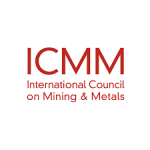 According to the International Council on Mining and Metals (ICMM), the world’s largest mining companies pledged on Tuesday to achieve a target of zero net direct and indirect carbon emissions by 2050 or sooner.
According to the International Council on Mining and Metals (ICMM), the world’s largest mining companies pledged on Tuesday to achieve a target of zero net direct and indirect carbon emissions by 2050 or sooner.
The announcement comes ahead of next month’s UN climate meeting, which aims to get more ambitious climate action from the nearly 200 countries that signed the 2015 Paris Agreement to limit global warming.
Many miners including Anglo American, Rio Tinto and BHP, under pressure from environmental activists and shareholders, have already committed to zero by 2050 in direct and indirect emissions.
The collective commitment, however, represents a shared ambition by companies that make up a third of the global mining and metals industry.
Its 28 members, whose operations span 650 sites in 50 countries, will report annually on their decarbonisation progress.
The mining industry has a ‘decarbonisation challenge‘ because the sector needs to reduce emissions while producing metals, such as nickel and copper, that are vital to a low-carbon economy.
Direct and indirect emissions will be lowered by accelerating the use of renewable energy and reducing or eliminating the use of diesel trucks.
Targets for emissions, which include those of customers processing iron ore into steel, should be set if not by the end of 2023, then as soon as possible.
Glencore, the world’s largest supplier of marine thermal coal, has pledged to meet the ambit three target primarily through the closure of its coal mines. ICMM members, which include Barrick Gold and Alcoa, have collectively cut emissions by 6% between 2016-2018.
.gif) Loading
Loading

